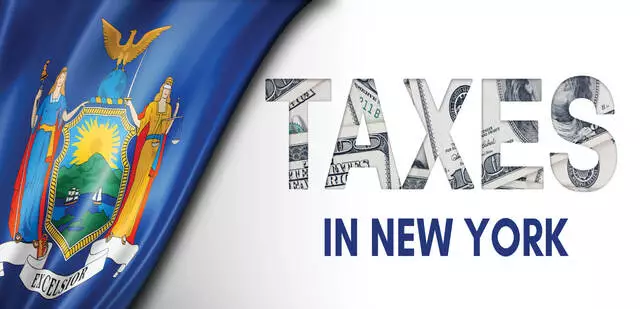
There were two determinations posted by the DTA on May 18, 2023.
Matter of Pilgrim, ALJ Behuniak, May 11, 2023; Div’s Rep. Michael Trajbar, Esq.; Pet’s Rep. pro se; Article 22: Petitioner filed a return for 2015 claiming a refund of $232. Later, Petitioner and her husband filed a joint amended return for the same year claiming a refund of $710. The Division granted the refund, but indicated that $232 had already been paid in connection with Petitioner’s original return and the rest had been applied to some open debts owed to the state. The Division claimed it didn’t find a filed 2016 return for Petitioner. Petitioner and her husband filed a return for 2017 claiming a $12,048 refund, almost all of which was the result of child and dependent care credits. The Division’s requests for additional information to substantiate the claimed credits were ignored, so the Division disallowed the refund.
Petitioner requested a Conciliation Conference to challenge the disallowance of the 2017 refund, and after the Conferee sustained the disallowance, Petitioner filed her 90-page long petition challenging the disallowance of refunds for the 2015-2017 tax years. The breadth of her claim notwithstanding, Petitioner attached only the 2017 Notice of Disallowance to her petition.
And, at the hearing, Petitioner argued:
“[T]hat between all the things going on in her life, including her illegal evictions, the fact that her property and identification were stolen, her problems with the IRS, her disability, and her ex-husband’s manipulation of her federal and State tax records, she rightfully deserves refunds for the tax years 2015, 2016, and 2017.”
After going through the motions of explaining the burden of proof and what needed to be proven to substantiate the earned income and child and dependent care credits the Petitioner claimed, Judge Behuniak found that he didn’t have jurisdiction to address issues for the 2015 and 2016 tax years and that Petitioner did not produce enough evidence on most of the factual matters on which she bore the burden of proof to demonstrate she was entitled to the claimed credits.
I sympathize for Petitioner. It seems she has had a really tough go of it. But the “karma defense” is probably not the most effective approach to litigating before the DTA.
Matter of Zhou, ALJ DiFiore, May 11, 2023; Div’s Rep. Brian Evans, Esq.; Pet’s Rep. William Zhou, Esq., Article 20. Regular readers know that the DTA’s treatment of the Tax Law § 481(1)(b)(i) penalty for possession of cigarettes is a sore spot with me. The DTA consistently holds that the Division can assert the maximum penalty against a possessor of untaxed cigarettes for any reason or no reason at all because the penalty is within the Division’s discretion. My response is a similarly-consistent, “if the Division doesn’t consider the magnitude of the penalty and reasons why the maximum penalty should or should not apply, it is a failure to exercise discretion which is an abuse of discretion.” The DTA and I can agree to disagree on this.
But this is a case where one might conclude that the maximum penalty is appropriate, even though some of the government actors involved seem Keystone Cop-ish.
Petitioner sold unstamped cigarettes to an undercover agent. Petitioner took the agent’s money, and when Petitioner went to the back of his car to get the unstamped cigarettes, “members of the Criminal Investigation Division Cigarette Strike Force of the Division of Taxation (Division), along with United States Postal Inspectors, United States Food and Drug Administration Investigators and the Queens DA Investigators, apprehended petitioner.” OK. Pump the brakes. A guy was selling unstamped cigarettes from his trunk and it took a dozen government agents to “take him down?” And I wonder … was the post office inspector there because someone heard that the alleged criminality involved something “unstamped?” And why FDA participation? Was ATF too busy?
Following the arrest, the car Petitioner was driving was searched, and the government’s shock and awe squad found 236 cartons of cigarettes.
Petitioner pled guilty to “disorderly conduct,” forfeited $3,000 seized during the arrest, and paid an additional $10,000 in restitution. The Restitution Agreement provided, “[t]his restitution will be forwarded to the appropriate taxing authority, but does not in anyway [sic] bind such authorities from seeking any additional redress.” Petitioner perhaps should have asked his attorney what “redress” meant, and we’ll get there in a minute. But again a question: They had a score of government agents witness Petitioner possessing and selling untaxed cigarettes and the best charge they could stick him with was disorderly conduct?
The same Division of Taxation that was part of the army conducting the original arrest waited in the tall grass for another year after Petitioner’s sentencing and then pounced by sending a notice to him asserting the maximum $600 per carton penalty for a total of $138,600. A Conciliation Conference resulted in the Notice being sustained. In his petition, Petitioner argued, “that he was arrested and charged for the sale of the unstamped cigarettes and that such charge was resolved with a restitution payment in the amount of $13,115.60 that Petitioner paid to New York State. He also alleged that because the 236 cartons of cigarettes that were seized were unsold, there should not be any sales tax imposed.” Sorry, but I need to digress again. Sales tax? Where did that come from?
Judge DiFiore quickly disposed of Petitioner’s arguments by observing that: (1) Petitioner didn’t dispute that he was in possession of 236 cartons of unstamped cigarettes, (2) the act to which the penalty applied was possessing unstamped cigarettes, and (3) it was not necessary that the cigarettes be sold for the penalty to apply. She didn’t explain that this wasn’t a sales tax case; maybe she thought that should be obvious.

